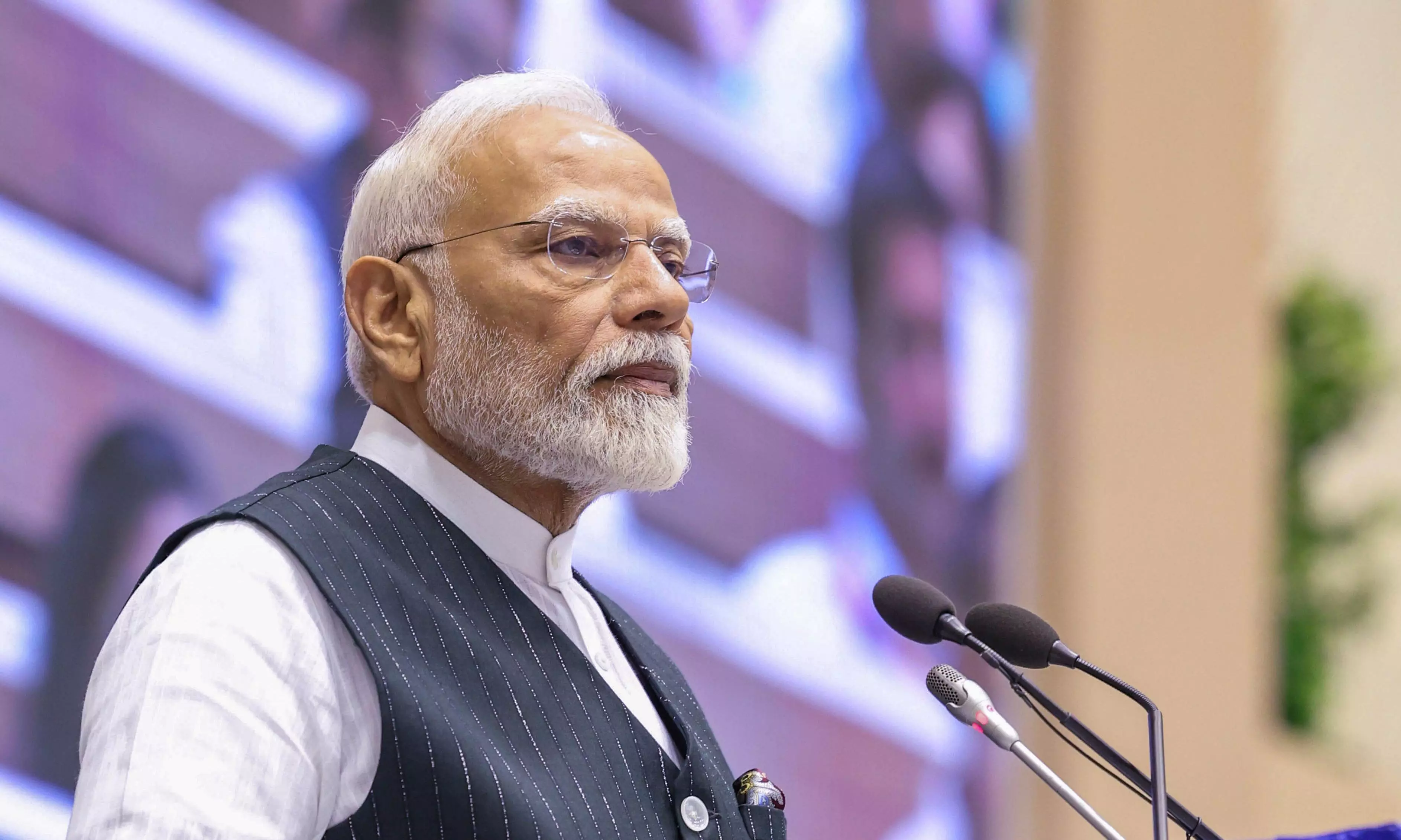
New Delhi: Prime Minister Narendra Modi on Monday said that the policies his government was working on would shape the future of the next 1,000 years. Addressing civil servants on the occasion of the 17th Civil Services Day at Vigyan Bhavan here, Mr Modi invoked the principle of “Nagrik Devo Bhava” (citizens are like God), likening it to the ethos of “Atithi Devo Bhava” (guests are like God), and called on civil servants to see themselves not just as administrators but as architects of a developed India, fulfilling their responsibilities with dedication and compassion.
He said that successes of the past 10-11 years have laid a strong foundation for a developed India. The PM said: “The policies we are working on today, the decisions we are making, are going to shape the future of the next thousand years.”
Quoting ancient scriptures, he said, just as a chariot cannot move with a single wheel, success cannot be achieved solely by relying on fate without effort. Underscoring the importance of collective effort and determination in achieving the goal of a developed India, he urged everyone to work tirelessly, every day and every moment, towards this shared vision.
Mentioning the rapid changes occurring globally, he emphasised that India’s bureaucracy, work processes, and policymaking cannot operate on outdated frameworks.
Mr Modi said the aspirations of India’s society, youth, farmers and women, and their dreams, have reached unprecedented heights and stressed the need for extraordinary speed to fulfil these aspirations.
The Prime Minister outlined India’s ambitious goals for the coming years, including energy security, clean energy, advancements in sports, and achievements in space exploration, emphasising the importance of raising India’s flag high in every sector.
Underlining the immense responsibility on civil servants to ensure India becomes the world’s third-largest economy at the earliest, he urged them to prevent any delays in achieving this critical objective.
Expressing happiness over the theme of this year’s Civil Services Day, “Holistic Development of India”, Mr Modi emphasized that this was not just a theme but a commitment and a promise to the people of the nation.
“Holistic development of India means ensuring that no village, no family, and no citizen is left behind,” he said, adding that true progress is not about small changes but about achieving a full-scale impact.
He highlighted that quality in governance was not determined by the mere launch of schemes but by how deeply these schemes reach the people and their real impact. The Prime Minister noted the visible impact in districts like Rajkot, Gomati, Tinsukia, Koraput and Kupwara, where significant progress has been made, from increasing school attendance to adopting solar power.
Highlighting that over the past 10 years, India has progressed from incremental change to impactful transformation, the PM emphasised that the country’s governance model is now focused on “Next Generation Reforms”, leveraging technology and innovative practices to bridge the gap between the government and citizens.
Underlining India’s achievements over the past decade, emphasising transformative changes and the nation’s attainment of new heights, Mr Modi said: “India is now recognised not merely for its growth but for setting new benchmarks in governance, transparency, and innovation.”
Mentioning efforts over the past 11 years to eliminate delays, introduce new processes, and reduce turnaround time through technology, Mr Modi said that over 40,000 compliances have been removed, and more than 3,400 legal provisions have been decriminalised to promote ease of business.
Recalling the resistance faced during these reforms, with critics questioning the need for such changes, the PM, however, emphasised that the government did not succumb to pressure, asserting that “new approaches are essential for achieving new results”.
Reflecting on the past role of bureaucracy as a regulator that controlled the pace of industrialisation and entrepreneurship, the PM emphasised that the nation has moved beyond this mindset and was now fostering an environment that promotes enterprise among citizens and helps them overcome barriers.
The Prime Minister congratulated the districts and individuals associated with these initiatives, acknowledging their excellent work and the awards received by several districts. He also conferred the Prime Minister’s Awards for Excellence in Public Administration. This year, 16 awards were given by the Prime Minister to civil servants.





